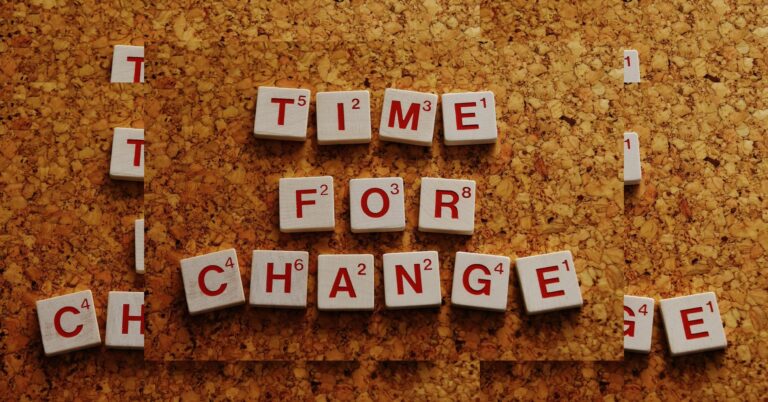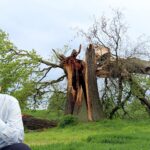Imagine living in a vast library with only one book and believing that book contains all the knowledge worth knowing. Sounds absurd, right? Yet that is exactly how we often navigate life.
Despite the sheer complexity of the world, we routinely make judgments, form beliefs, and act on assumptions based on a sliver of what is available to know. That is not an insult to our intelligence; it is a recognition of our cognitive limits. And in today’s fast-moving world, forgetting those limits is costly.
The Myth of Complete Knowledge
Human beings are naturally drawn to certainty. From an evolutionary standpoint, certainty offered survival advantages. If our ancestors heard rustling in the bushes and assumed it was a predator, even if it was not, that cognitive shortcut kept them alive. Our brains are designed to take quick, efficient mental shortcuts, known as heuristics, to process information rapidly and make decisions under pressure. This system works well for routine or familiar scenarios. However, it can lead to major errors when applied to complex, ambiguous, or unfamiliar situations.
What complicates matters further is the illusion of completeness. Once we form an impression or belief, we rarely pause to ask how much of the bigger picture we are seeing. We tend to overestimate the depth and accuracy of our understanding. This phenomenon, often referred to as the “knowledge illusion,” leads us to believe we know more than we do simply because the information feels coherent and familiar.
Think about how quickly we form opinions after reading a single headline, hearing one side of a story, or watching a few minutes of a documentary. These micro-exposures shape macro-beliefs that influence how we vote, how we relate to others, and even how we view ourselves.
How Our Limited Understanding Shapes Beliefs and Biases
We all walk through the world interpreting it through personal filters, a blend of our upbringing, culture, education, past experiences, and current emotional state. These filters are not inherently bad; they help us navigate life. But problems arise when we mistake our perspective for objective truth.
Let us take confirmation bias as an example. It is the tendency to search for, interpret, and recall information that confirms our existing beliefs. If we believe that people are fundamentally lazy, we will unconsciously highlight every example that supports that view and ignore all the instances that contradict it. The danger is not in having beliefs; it is in failing to recognise how selectively those beliefs are formed.
Another example is the Dunning-Kruger effect, a cognitive bias in which people with limited knowledge or competence in a domain overestimate their own ability. It is not arrogance as much as it is a miscalibration of self-awareness. Ironically, the more we know, the more aware we become of how much we do not know.
When we assume our knowledge is sufficient, we stop questioning. That is when thinking becomes stagnant. We default to mental autopilot, acting on unexamined assumptions that may be flawed or incomplete.
The Cost of Overconfidence in Relationships and Leadership
Overconfidence is not just a personal blind spot; it has relational and systemic consequences. In relationships, assuming we understand someone’s motives without asking can lead to misunderstandings and unnecessary conflict. We judge others based on limited observations, unaware of the broader context behind their behaviour.
Consider a workplace setting. A leader who assumes they “know what’s best” without seeking input from their team may miss innovative ideas, create disengagement, or foster resentment. On the other side, leaders who recognise the limits of their knowledge and invite collaboration foster environments of psychological safety and trust.
In coaching and counselling contexts, I often see how overconfidence in one’s worldview can be a barrier to healing. When clients hold rigid interpretations of their identity, history, or relationships, believing “this is just the way things are”, they limit their capacity for change. One of the most liberating shifts happens when people begin to see their stories not as fixed truths, but as interpretations based on limited data. That shift opens the door to re-authoring their narrative with more agency and compassion.
Building Intellectual Humility: Practical Ways to Stay Grounded
Intellectual humility is the recognition that our knowledge is limited, and that we may be wrong. It does not mean lacking confidence or avoiding decisions; rather, it is about holding our views with openness and curiosity. So how do we cultivate it?
1. Ask more questions than you give answers.
Adopt the mindset of a lifelong learner. Instead of trying to win arguments or prove points, prioritise understanding. When faced with opposing views, ask: “What might they be seeing that I’m not?”
2. Slow your judgments.
The faster we judge, the more likely we are to rely on cognitive shortcuts. Give yourself permission to pause, especially when you feel emotionally triggered or morally certain.
3. Surround yourself with cognitive diversity.
Seek out conversations with people who challenge your perspective. Diversity of thought enriches understanding and reduces blind spots.
4. Reflect regularly.
Journaling, coaching, or even quiet contemplation can help you notice where your beliefs come from and how they evolve. Reflecting helps uncover inherited assumptions that may no longer serve you.
5. Practice epistemic modesty.
This is the simple but powerful habit of acknowledging, “I might be wrong” or “I don’t have the full picture.” Far from being a weakness, this kind of humility invites trust and encourages deeper dialogue.
Making Wiser Choices from a Place of Partial Knowing
We all want to make good decisions, in our careers, our relationships, and our personal development. But good decisions do not come from pretending we know it all. They come from navigating uncertainty with curiosity, integrity, and openness.
Operating from a place of partial knowing helps us:
- Stay flexible. When new information arises, we are more willing to adapt.
- Reduce conflict. We are less likely to become defensive or dogmatic.
- Strengthen relationships. Humility invites collaboration and deeper connection.
- Think critically. We become better at evaluating evidence and making balanced judgments.
The paradox is this: the more we acknowledge what we do not know, the more clearly we can think. That clarity does not come from accumulating more data, but from recognising the boundaries of our knowledge and acting wisely within them.
Final Reflection
The world is too complex, too dynamic, and too interconnected for any one of us to have a complete grasp on it. But we do not need complete knowledge to make thoughtful, meaningful decisions. What we need is the humility to see the edges of our understanding, and the courage to think beyond them.
In a time when information is abundant, but insight is rare, embracing our cognitive limitations might be the most radical act of wisdom we can practice.
Let that be our edge, not the boundary of what we know, but the beginning of what we are willing to explore.








